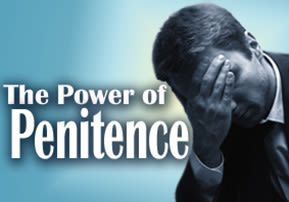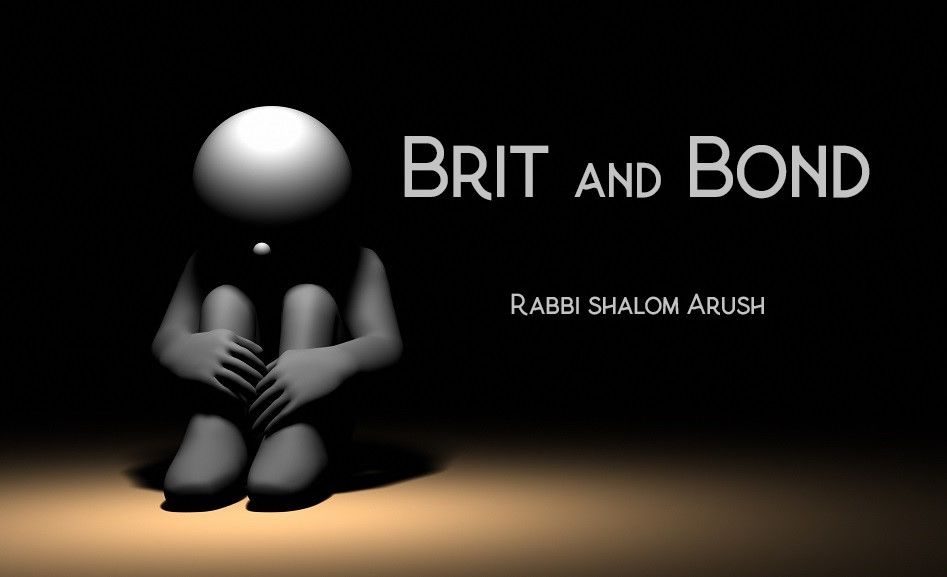
The Power of Penitence
Tshuva is one of the most uplifting experiences in life. But, the pain of facing past errors and the need to make changes to set one’s life on a healthier...

There Is A Tikkun
The reader can rightfully ask, “After all that I have learned from this book, what can I do to rectify my past mistakes?”
First of all, one must know that with all of the gravity that sexual transgression involves, penitence (teshuva) is certainly possible, as the Rambam states: “There is nothing that stands in the way of repentance.” (Laws of Teshuva, 3:24)
Furthermore, a person should not think that because of the great number, or because of the seriousness of his sins, he can never start anew. This is not true as the Rambam makes clear:
Furthermore, a person should not think that because of the great number, or because of the seriousness of his sins, he can never start anew. This is not true as the Rambam makes clear:
“Let not the penitent suppose that he is prevented from attaining the degree of the righteous because of the iniquities and sins that he has committed. This is not so. He is beloved by the Creator, and desired by Him, as if he had never sinned. Moreover his reward is great, since through having tasted sin, he renounced it and overcame his evil passions. The sages say, ‘Where penitents stand, the completely righteous cannot stand.’ (Berachot 34B) This means that the degree attained by penitents is higher than that of those who had never sinned, since the penitent has had to put forth a greater effort to subdue his passion than he who has never sinned.” (Ibid, 7:4)
The Talmud teaches that the penitent not only cleanses himself of transgressions, his penitence brings blessing to all of existence.
“Great is penitence for it brings healing to the world, and an individual who repents is forgiven, and the whole world is forgiven with him.” (Yoma 86A)
The renewal of teshuva is undoubtedly one of the most uplifting experiences in life. Nonetheless, because of the pain involved in facing past errors, and the need to make real changes in order to set one’s life on a healthier, holier path, the challenges facing the penitent are not easy. This is especially true when it comes to redressing sexual transgression where the penitent is called upon to redirecting life’s most powerful urge from an egotistical quest for personal pleasure to a fervent love and attachment to G-d.
As the Rambam writes: “Nothing is more difficult to overcome for the majority of people as sexual prohibitions.” (Rambam, Laws of Forbidden Relationships, 22:18.)
However, if the decision is made to stop, in time the desire weakens, as the Talmud teaches, “A man has a small organ – when it is starved, it is satisfied; when it is fed, it is hungry.” (Sukkah 52B)
The essentials of repentance are that a person abandon his transgression, remove it from his thoughts, and resolve never to do it again. He must make an oral confession, verbalizing the resolutions he made in his heart. Moreover, it is necessary to specify the sin. (Rambam, Laws of Teshuva, 2:3)
The Rambam writes:
“Some of the ways of expressing repentance are that the penitent cries out continuously before G-d with tears and supplications; gives charity according to his means; keeps far away from that wherein he sinned; changes his name, as if to say that he is another individual and not the one who committed those deeds; changes all of his activities for a better course, on the righteous path; and exiles himself from his former residence, since exile atones for iniquity, inducing as it does, humility, meekness, and lowliness of spirit.” (Ibid, 5)
In effect, in starting off on the road of teshuva, the penitent has already succeeded. For in reaching out to G-d, he has already attached himself to the true meaning and greatest pleasure of life.
(For a more in-depth study of teshuva, see the book, “The Art of Teshuva – The Teachings of Rabbi Avraham Yitzhak HaKohen Kook ,” commentary by Rabbi David Samson and Tzvi Fishman).
To be continued.
***
(Secret of the Brit is reprinted with kind permission of JewishSexuality.com. Tzvi Fishman was awarded the Israel Ministry of Education Prize for Creativity and Jewish Culture. His books on Judaism and Jewish themes include: “Tuvia in the Promised Land,” “Days of Mashiach,” “The Kuzari For Young Readers,” and four books on the teachings of Rabbi Kook, “Torat Eretz Yisrael,” “War and Peace,” “The Art of T’shuva,” and “Lights on Orot,” co-written with Rabbi David Samson)








Tell us what you think!
Thank you for your comment!
It will be published after approval by the Editor.